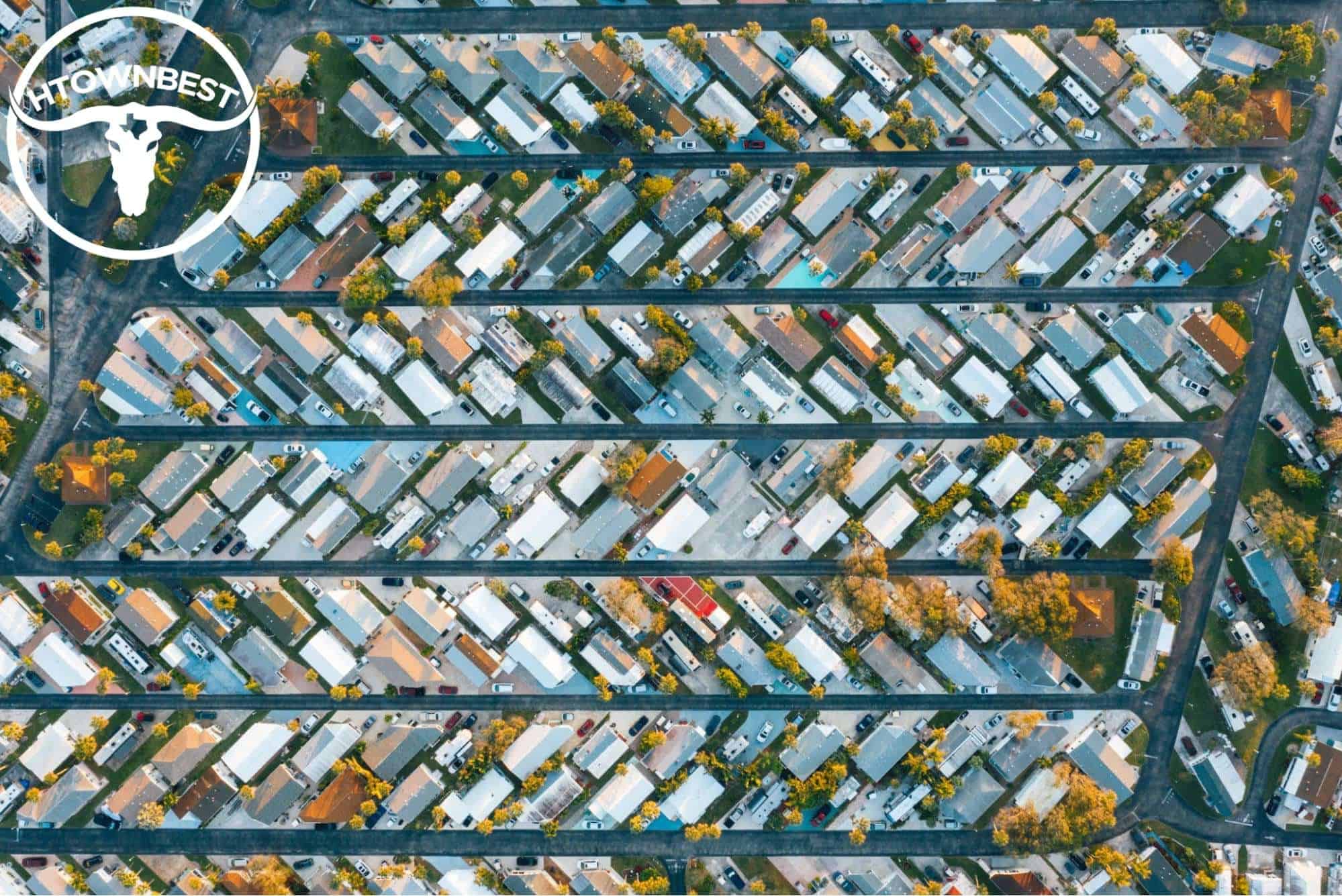Does Houston have zoning laws? Why not?

Zoning laws are tools used by national or local governments to divide and label certain areas. They also dictate what can or can’t be done in each zone. This allows for the proper planning of and execution of urban development.
Sounds simple and logical enough right? So, why is it that Houston doesn’t have any zoning laws? The answer’s simple enough. Houston doesn’t have zoning laws because the residents of the city voted against them.
In this article, we aim to explain the following:
- What exactly are zoning laws?
- Why does Houston not have them?
- What effects this has on Houston?
- Should zoning laws be implemented?
What are zoning laws?

Zoning laws are regulatory tools used to divide land into sections which are later on assigned specific uses. This helps shape the layout of a town or a city and allows the government to utilize and maximize each space for its own purpose.
Local authorities use zoning laws to determine what structures can be built in each sector and what activities may take place.
For example, the size and heights of buildings are regulated depending on which zone they’ll be placed in. The functions of these buildings are also pre-approved to ensure safety of neighboring residents or places of commerce or employment.

Some examples of zoning classifications or labels and what they can be used for are listed in the table below for your convenience.
| CLASSIFICATION | PERMITTED BUILDINGS |
| Agricultural | Farms, Plantations, Greenhouses, Orchards, Vineyards |
| Commercial | Shops, Malls, Department Stores |
| Hotel and Hospitality | Hotels, Inns |
| Industrial | Factories, Workshops, Plants |
| Residential | Homes, Apartment Complexes, Private Villages, Town Houses |
Does Houston have zoning laws?

The City of Houston does not have any zoning laws that are traditionally made and implemented like in most cities in the world.
However, the city uses ordinance codes for its planning and the development. These codes dictate how land is to be divided to provide at least a little bit of structure and organization.
According to the Houston Government Website, there are still rules and regulations in place to make sure that land is properly subdivided.
There are also different traffic rules and construct regulations imposed on specific areas within the city. Examples of these are regulations on parking, plant requirements, access, and setbacks.

However, Houston still implements some regulations on specific areas — those near airports and a special tax increment zone.
Areas surrounding the major airports like the following are regulated in terms of the height of structures built in this area. This is to make sure that the airspace is regulated for safety:
- George H. Bush Intercontinental Airport (IAH)
- Houston Hobby Airport (HOU)
- Ellington Airport (EFD)
Why doesn’t Houston have zoning laws?

Houston doesn’t have zoning laws because the citizens of the city voted against them.
Like most democratic cities, Houston puts major decisions like the use of zoning laws to a vote. And each time voters elected not to implement them. Three times already, to be exact.
In the elections that took place in 1948 and 1962, the number of people who voted against zoning laws won by a landslide. In the latest tally in 1993 with a substantially low turnout, the voters who were against the zoning won by 4%.
Why did people vote against zoning laws?

Houston, Texas, is one of the largest cities in the United States that does not have a comprehensive zoning code, meaning that land use and development are not regulated by the government through zoning laws.
This is a unique feature of Houston’s growth and development and has roots in the city’s history and political culture.
One of the main reasons why Houstonians have historically voted against zoning laws is a general distrust of government intervention in private property rights.
Many Houstonians believe that zoning laws restrict their freedom to use and develop their property as they see fit, and that the government should not have the power to dictate how land is used.

Additionally, Houston has a strong tradition of laissez-faire economics and a pro-business attitude, and some people believe that zoning laws would limit economic growth and make it more difficult for businesses to operate and expand.
Another reason why zoning laws have not been adopted in Houston is because of the city’s rapid growth and lack of planning.
In the past, Houston has experienced rapid growth without the use of comprehensive planning and zoning laws, and many Houstonians believe that these regulations are not necessary for continued growth and development.
How does having no zoning laws affect Houston?

Although Houston does not have generalized laws that are implemented in terms of zoning, there are still rules regarding height and lot-size restrictions.
In addition, most regulations are left to private parties like homeowner associations which may lead to inequitable distribution depending on who holds deciding power.
The Pros of No Zoning Laws

No zoning laws have also made home prices cheaper in Houston. Ranked at No. 20 in affordability, the city’s income to housing cost ratio is considerably more accessible than other neighboring cities and states.
Moreover, the more lax approach on zoning has opened up the city to a more diverse housing stock and even avoided common cases of gentrification and racial segregation that some zoned cities might experience.
The Cons of No Zoning Laws

The single biggest argument for the implementation of regular zoning laws is safety. Without laws to regulate on a large scale, issues in safety and fairness can come into play.
Since most areas are not segregated by use like most other cities, industrial spaces can invade residential ones easily.
For example, some factories can be built next to houses which can cause health issues. On the other hand, construction for structures may also disturb schools or hospitals nearby.
Moreover, because of the lack of structure in zoning laws, a lot of loopholes can be exploited by those who have the means and resources in order to get their way.
Big corporations who have powerful lawyers can work their way around the rules in place to build in places that do not benefit the majority.
According to Cole Rosengren on WasteDive, one example of a company taking advantage of Houston’s no zoning laws is the case of Waste Management, Inc.

Should Houston residents look into implementing zoning laws?

Houston residents should look into implementing zoning laws because this may result in more development and progress within the city that make up for the costs of having them implemented.
Whether Houston residents should look into implementing zoning laws is a matter of debate and depends on individual perspectives and priorities. There are arguments both for and against zoning laws in Houston.
Advocates for zoning laws argue that they can help manage growth and development in the city, leading to more organized and sustainable growth.
Zoning laws can also be used to protect the character and integrity of established neighborhoods, prevent conflicts between different land uses, and promote public health and safety.

On the other hand, opponents of zoning laws argue that they can restrict property rights and limit economic growth by making it difficult for businesses and developers to operate and build.
They also believe that zoning laws can lead to increased costs and bureaucratic red tape, making it harder for residents to make changes to their properties.
If zoning laws are implemented, this might result in a rise in housing or construction costs, which can then directly affect other everyday expenses.
However, areas that are more affluent have enough resources to take advantage of the no zoning laws in Houston while less fortunate neighborhoods suffer the injustice that might abound from this.





